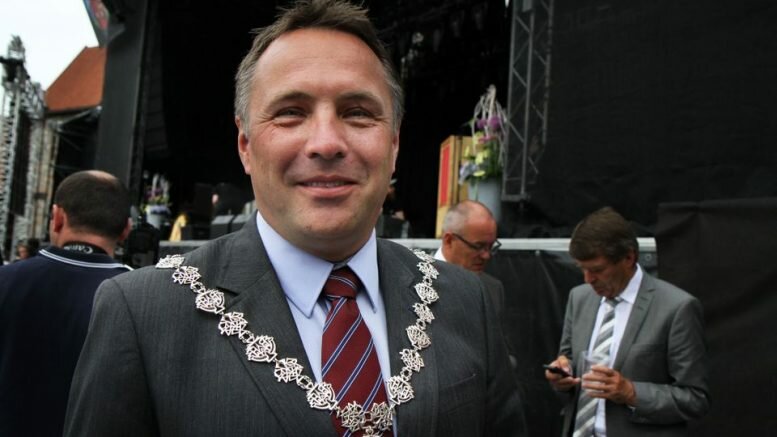A joint Parliament must contribute to larger regions
Today, it became known that the Government parties and the Christian Democrats (KrF) have reached an agreement on which tasks the regions will handle instead of the Norwegian state. The leader of all county councillors and county governor in Trøndelag, Tore Sandvik, believes the Parliament should join forces and be more forcefully present in several areas.
– Since the regional reform has now been clarified, a joint Parliament must help in the transfer of tasks to the regions. That power, resources and tasks are shifted from state directorates and bureaucrats to those elected by the regions, strengthen the people’s influence, and will provide more accurate and comprehensive management of the counties (regions) in Norway. More comprehensive use of power and resources regionally will lead to a more efficient use of society’s resources in road construction, education, innovation and business development, says Sandvik.
– The press conference today does not clarify all the details, but there are reasons to ask if it is necessary to move at a snail pace in many areas so that the Parliament can join forces to be more powerful in other areas, the county governor continues.
The Christian Democrats have sold Finnmark at a fire sale price
The Deputy County Councillor in Finnmark, Tarjei Jensen Beck, has not given up the hope of annulling the forced marriage with Troms.
– The Christian Democrats (KrF) has sold Finnmark on a fire sale in the back room. We are utterly disappointed, says the Labour (Ap) Politician to NTB.
87 per cent of the population in Finnmark voted against the merger at a referendum in May. Jensen Bech believes that the KrF and the Government parties do not understand the Finnmarkians.
– We had the hope that KrF would listen to Finnmark’s population. Since most people are totally opposed to the merger, we think it’s wise to listen to that, he says.
– The regional reform is a rats nest that has started in the wrong end.
The Deputy Councillor emphasises that he has not abandoned all hope.
– We stick to our primary position. Now we have to turn all stones, use time and see what we can do towards the processing by the Parliament.
Jensen Beck is positive that the county municipality will receive increased duties but does not want it to be at the expense of Finnmark as a separate entity.
– Finnmark wishes for democracy and wants to continue to control its own development.
He believes that it will be unfortunate with a giant region with immense distances. At the same time, he believes it would still be advisable to have public authorities close to the border with Russia.
Facts about tasks in the regions
- The northern areas: Finnmark and Troms are given greater responsibility and a more central role in the design and implementation of the policy in the polar region.
- Integration: the Integration and Diversity Directorate (IMDI) is retained as a national competence centre for integration, but several of their tasks are transferred to the counties. This is particularly true of responsibility for qualifying immigrants to meet regional labour market needs.
- Competence Norway is maintained as a directorate, but several tasks are transferred to the regional electoral level.
- Part of Innovation Norway’s aid apparatus is being taken over by the counties (regions).
- All tasks in today’s county councils in the field of species management, except for endangered species and protected area management, are transferred to the county municipality.
- The administration of county roads is transferred from the Norwegian Public Roads Administration to the counties (approved by the Parliament already).
- Management of grants for investigative and facilitation measures in agriculture is transferred from the Norwegian state to the county municipalities.
- The county municipality is strengthened as a business policy player by moving tasks from SIVA and Innovation Norway to them.
- Non-state owned airports: Grants are transferred from the state to the counties.
- Lease of domestic air routes is moved from state to county.
- Development of fishing ports: Responsibility is moved from state to county.
- Broadband development is being taken over by the counties.
- The taxi permit scheme will become a regional responsibility.
- Management of investigative and facilitating decisions, as well as responsibility for coastal forestry and commitment to “ecological pacemakers”, are transferred from the county governors office to the counties.
- Nature conservation tasks are transferred from the state to the counties, including protection of agricultural soil and national heritage sites.
- Today’s regional cultural heritage administration will be given more tasks that today sorts under the State Antiquarian.
- The aim is to incorporate the regional development funds in whole or in part into the income system from 2020
- The state grant scheme for extended TT offers is incorporated into the county municipality, but not before the scheme has been financed as a national scheme.
- Grants for healthy lives, mastering and learning, as well as grants for interdisciplinary efforts in the field of drugs and funds in the program for public health are transferred from the state to the county authorities.
The agreement shows that it is important that the regional reform in the long term will provide economies of scale and more efficient use of resources. But the counties must be adequately financed to handle the merger process.
© NTB scanpix / #Norway Today




